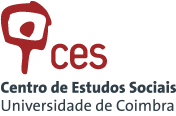Seminário
Waves of change in the Arab World: a multidisciplinary approach to its root causes and new phenomena
21 de novembro de 2011, 10h00
Sala 1, CES-Coimbra
Abstract
As the 21st century dawned on the Arab World, the region grappled with a profound clash between inherited deep rooted traditional ideologies and the distinct calls globalization was putting forward both economically and culturally. Recent uprisings in the Arab World were a clear evidence of this collision as well as a reflection of the latent inconsistencies of the international system. Starting in Tunisia in December 2010 and waving out to Egypt, Syria, Algeria and Lybia, the revolutions also are a reflection of traditional vs. modern, repressive vs. democratic and intergenerational tensions.
The Arab world is a huge area of land integrating multiple different cultural, ethnic and political entities, nevertheless, sharing significant common characteristics. Post-independence development, specifically, has been particularly marked in a cross-cutting way by authoritarian rule and heavy weight of religion within politics and social sphere. It made traditional ideologies to be demonized and adulterer by the ruling power in order to maintain and legitimize its own political leading role.
This seminar follows the idea that there exists a mutual constitutive relationship among domestic policies in the Arab World, local dialectic between power and resistance and the international dimensions. Both exogenous and endogenous triggers are intertwined and have to be researched as such in order to understand root causes, dynamics and future outlook for emancipatory or re-traditionalization processes in the region.
Bearing in mind the existence of porosity between internal contexts and the international arena (mainstream normative discourses; social imaginaries created and made widespread worldwide, key- actors performance, such as USA; EU; UN) the seminar will explore 1) the role of civil society 2) the specificity of civil resistance dynamics 3) the relation between democracy and Islam, 4) the processes media (mainstream, local and social media) has helped to leverage, 5) the figure of an Authoritarian State, and finally 6), the role international actors, specially EU have been playing and would play in the near future.
Event organized by Núcleo de Estudos sobre Humanidades, Migrações e Estudos para a Paz (NHUMEP)

